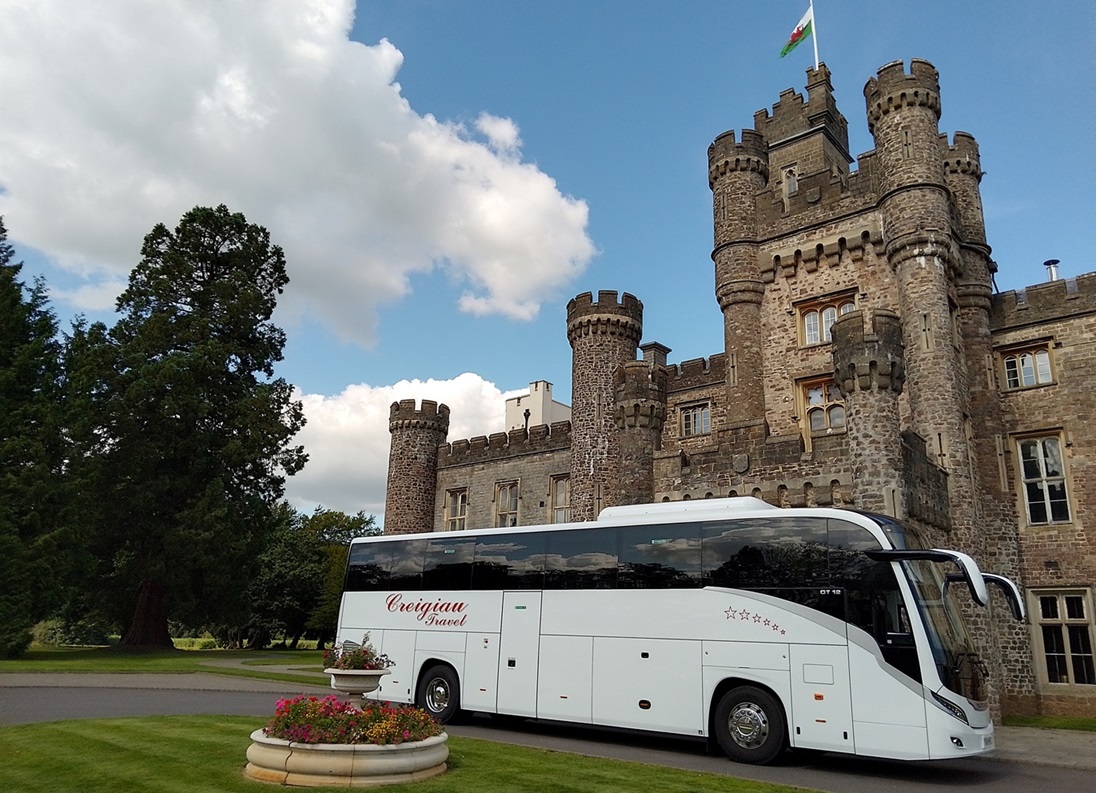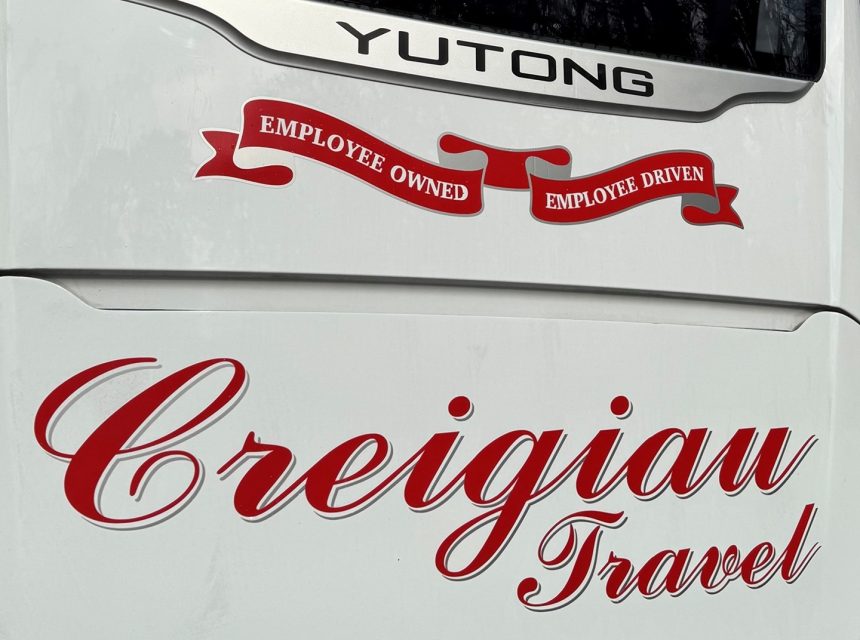Exiting ownership of a business is a point of some discussion in the coach and bus industry. Alongside sale to a third party is another option: An employee ownership trust (EOT). That has been pursued by operators including South Wales-based Creigiau Travel, which sees it as a good way to release equity while retaining an existing ethos and leveraging staff engagement.
Director Sam Matthews notes that before completion of the EOT move, he and his parents each owned one-third of Creigiau Travel. “My mother and father had got to the point where they were looking at exit,” he explains.
In late-2023, the head of a fellow coach operator informed Mr Matthews how it had already moved into an EOT, and shared information on the process.
From there, an advisor on such transfers was engaged by Creigiau Travel in December 2023. Mr Matthews created a portfolio detailing financials, forecasts, assets, staff, and clients. The advisor valued the business fairly, and sale of a 60% shareholding moved ahead. It completed in February 2024.
Realistic valuation key to employee ownership trust
Once a valuation was agreed between the advisor and the operator, it was taken to HMRC for approval. A business can choose to sell between 51% and 100% to the EOT.
“We had an option to take the proceeds of the sale up-front from a bank and then for the business to repay the bank each month, or we could use future profits to pay us gradually; that does not entail a loan and gives more flexibility,” he continues.
The projected timeline for Mr Matthews and his parents to be paid in full out of profits is five years from sale completion. Cash flow is maintained during that period. If unexpected challenges arise, negotiation can be done with the trust around extending the term. If the business performs better than forecast, it can be shortened.

A ‘friendly’ way to sell a business
An EOT sale attracts relief from capital gains tax, and once the valuation is agreed with HMRC, that sum is owed to the seller unless the company fails. Mr Matthews adds how separate valuations of Creigiau Travel from business disposal specialists were in the same range as that presented by the EOT advisor.
His mother’s experience in another field showed that sale to a competitor is a lengthy and stressful process with no guarantee of success. Transition to an EOT is a ‘friendly’ procedure in comparison. Staff retain job security and know that – once the pay-off is complete – they will own a percentage of the business and be eligible for dividends in line with future profits.
Employees qualify for shares after one year with the employer. Their shareholding is based on length of service and remuneration but is not theirs to sell; it remains in trust. If a staff member leaves, shares return to that ‘pot’.
The EOT itself is established effectively as a non-trading limited company. It has three directors: Mr Matthews, another member of the Creigiau Travel management team, and an independent. All staff with shares are trustees. Only if the operator is sold out of the trust would staff with those shares be able to cash them in.
Employee ownership trust benefits stack for operator
Benefits of an EOT sale are many, Mr Matthews says. The prior owners realise the business’s value, potentially as part of retirement plans. For staff, the long-term financial incentive is clear.
Creigiau Travel soon gained buy-in to the EOT plan from its management team. Likening it to a John Lewis arrangement helped to convey the message across all employees, with a positive response. The change was laid down in detail via a letter.

Honesty over the position is paramount, he continues. “Staff still ask me: ‘When am I getting my shares?’ It is important not to string people along; when we as previous owners have been paid, they will start seeing dividends.
“That is great for them, but it is not today. They need to buy in now, and I am pleased that our employees have done so.” Completing the pay-off and beginning dividends for eligible staff is the next milestone. The EOT shift has influenced retention; while not the biggest consideration for employees, it is “a cherry on the top.”
Social value is another consideration. After Creigiau Travel completed the sale, it undertook a mailshot to clients. Around 30 responded acknowledging the change, and it is hoped that many others took notice.
Transition to an EOT is described as “a strategic move” by Mr Matthews. He notes how interest in exit among coach operators has grown, but also that for some, a worry may be about where buyer interest could come from.
“This has been a very good fit for us. We wanted to realise the value of the business, but how our deal is structured does not mean an immediate exit and it retains our 40% shareholding. Importantly, the company ethos and day-to-day operations remain unchanged, which provides security and continuity for all.”
Does he regret any part of the sale? No. “It made sense for our circumstances. We got the right valuation with the favourable capital gains status afforded with an EOT deal. It has benefited staff engagement, retention and empowerment, and the marketing value is useful. One year along, and to date it has proved a great move for our family business.”
Mr Matthews is happy to discuss EOT with other operators. Contact him via email at sam@creigiautravel.co.uk



























